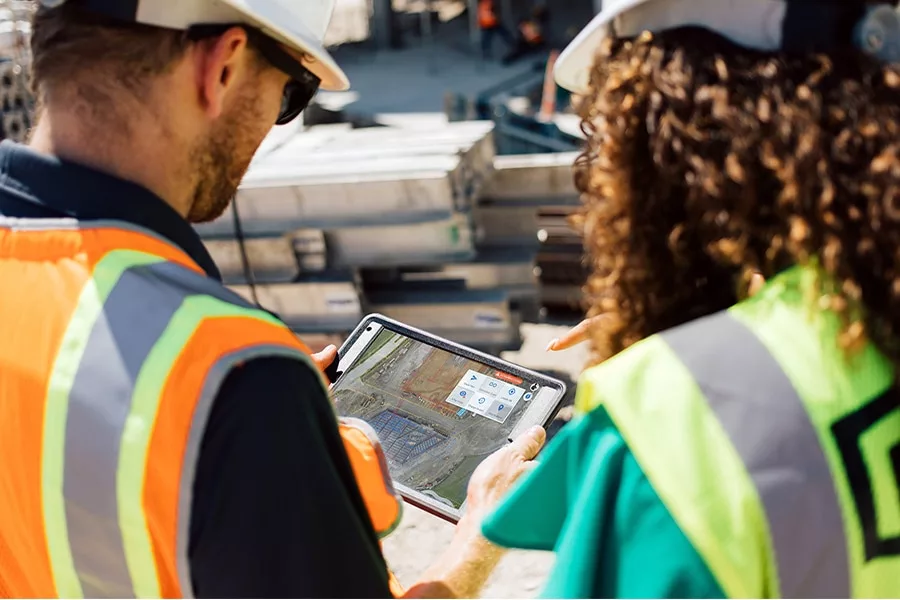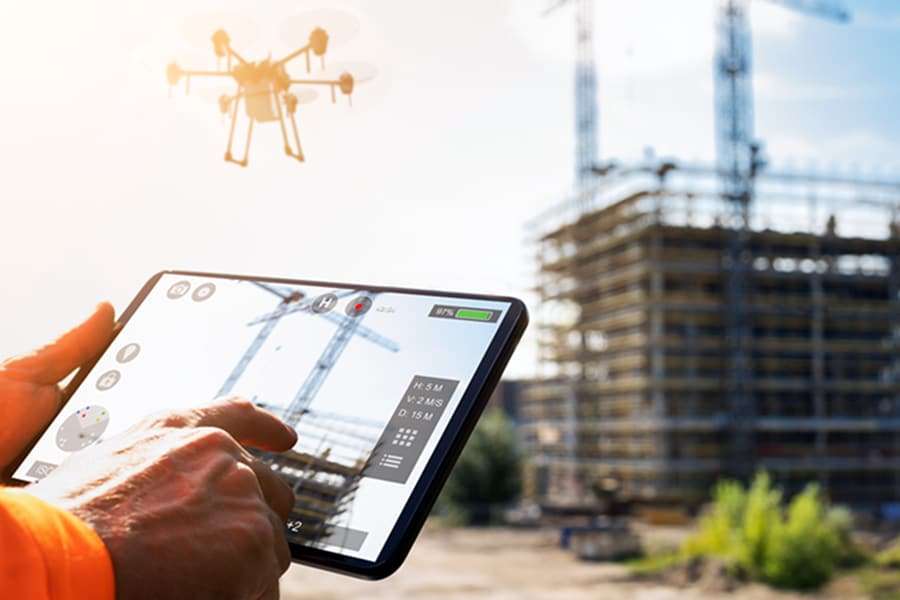
How Can GPS Help Construction?
From keeping onsite equipment secure and productive to helping map out land and terrain for projects, Global Positioning System (GPS) technology offers the construction industry a dimension of information that was simply unthinkable a few decades ago.
If you’ve ever gotten lost somewhere, chances are you’ll have whipped out your smartphone, checked where you are and, using an app such as Google Maps, worked out how to get to where you need to be.
The ability to navigate your way to that make-or-break gathering at La Maison de Boeuf will be down to your phone having access to a network of satellites circling the Earth that form the Global Positioning System (GPS).
Owned and operated by the US government, GPS technology allows a person’s smartphone to work out its location by getting bearings from three of the 21 satellites that circle the Earth at a height of 10,600 miles.
GPS doesn’t just help us get to where we need to go; it is also used to collect data that previously would have taken years or decades to accumulate. Scientists can measure changes to the environment, such as the condition of the polar ice caps, in a matter of days and use comparative data to assess future trends to highlight patterns of degradation or recovery.
Uses of construction GPS tracking
Beyond the realm of scientific research or being able to find one’s way to a restaurant, GPS can also be used in construction.
The benefits for the sector are myriad. With the use of mobile devices and cloud technology common on today’s construction sites, users will never be far away from being able to see where their equipment is.
By placing a small GPS tracking device on a piece of equipment – something valuable to a contractor, not to mention expensive – such as a large bulldozer or lifting gear, a contractor can be aware of where that piece of machinery is pretty much 24 hours a day, seven days a week.
As well as preventing potential thefts, hooking up a piece of GPS-enabled equipment on a large construction site means contractors can keep tabs on its whereabouts, potentially saving time and effort when that hardware is needed to address a job elsewhere at short notice. It can also ensure there is no unauthorized use of the asset.
Along with location and theft-prevention benefits, GPS tracking for construction equipment can be used to study fuel consumption, track an asset to ensure it is being used within its designed parameters and improve onsite productivity by aiding faster mapping and layout activities.
Elements of a good GPS device
What makes a good GPS tracking device for construction equipment? When seeking a system for your equipment, experts suggest considering the following:
Easy installation
A user-friendly interface
Accessibility on any device
Easily searchable information by address, point of interest, geofence or time frame
An easy-to-read format with options to export reports
Comprehensive data sets on each component
Fuel and maintenance insights
Automated alerts for unusual activity
As fleet management company Lytx says: “Ultimately, the amount of functionality and data provided depends on the sophistication of the individual devices and the system used.”
Supply chain boost
A study by researchers at the Universiti Tun Hussein Onn Malaysia notes, somewhat sagely, that while it is very large, the construction industry is “very reserved [when it comes to] adopting new technologies.”
The study highlights the numerous – and familiar – benefits of using GPS in the delivery of complex projects such as bridges, roads and highways, and high-rise buildings but urges the industry to show greater enthusiasm for the technology.
Another study by researchers at the University of Reading in the UK aimed to show that integration of Radio Frequency Identification applications – tags that read and transmit signals wirelessly – with GPS could help boost efficiencies in the supply chain.
“[This could be used] as a tool to generate, record and exchange process-related knowledge among the supply chain stakeholders. This would enable all involved parties to identify and understand consequences of any forthcoming difficulties and react accordingly before they cause major disruptions in the construction process,” the study added.
Such empirical studies only lend weight to the arguments of those who want to see GPS gain greater traction across the construction sector.
Source: How Can GPS Help Construction?
Share this post on:
Subscribe now
to receive newsletter with latest news weekly from Revu Experts Vietnam.
Related posts

Musselman & Hall Boosts Efficiency with Bluebeam
Musselman & Hall has embraced Bluebeam software to streamline their project takeoff and management processes.

The Top 3 Most Effective Construction Project Management Software
Let’s explore the top 3 most effective project management software currently shaping the complex landscape of the construction industry.

How Can GPS Help Construction?
From keeping onsite equipment secure and productive to helping map out land and terrain for projects, Global Positioning System (GPS) technology offers the construction industry a dimension of information that was simply unthinkable a few decades ago.

How Drone Technology Is Construction’s Eye in the Sky
The advent of drones gives the construction industry the opportunity to get a unique view of a building project as it rises from the ground.

